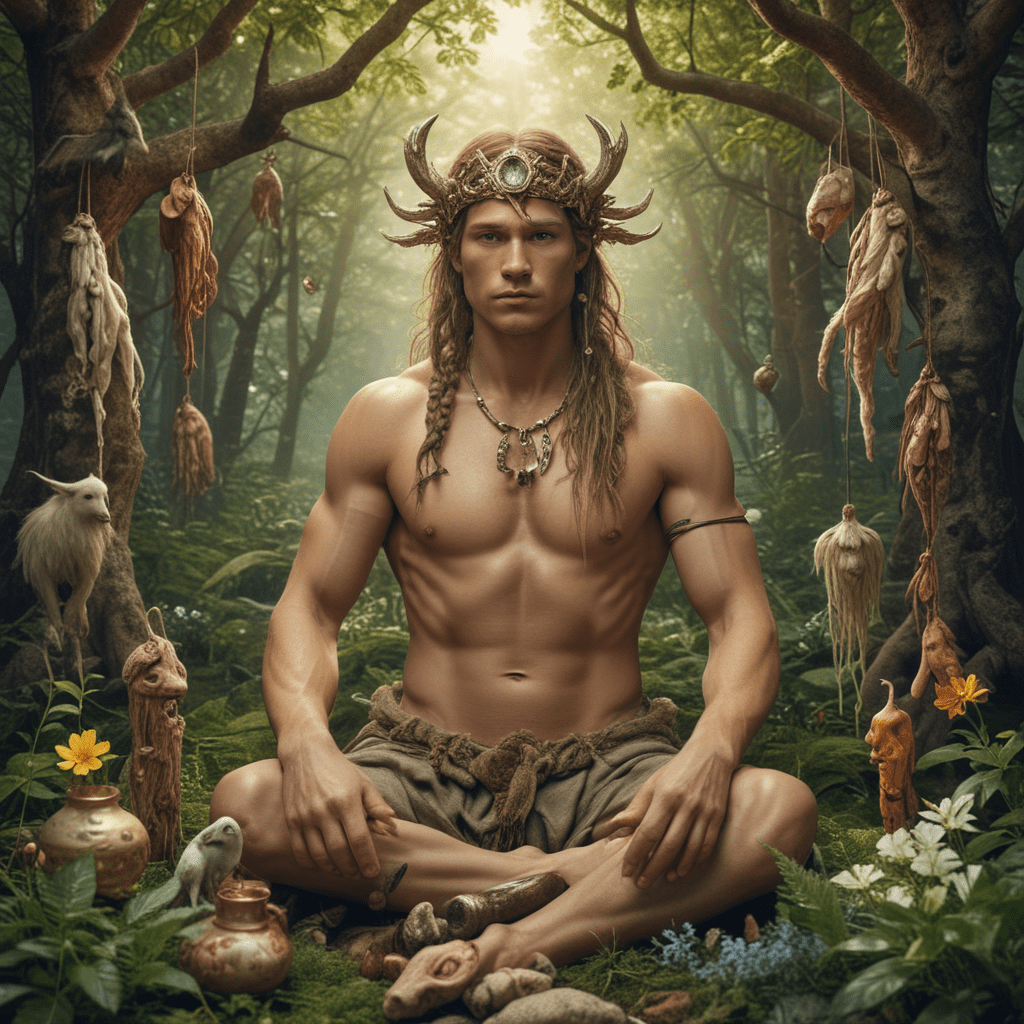Origins of Finnish Mythology
Finnish mythology is a rich and ancient body of beliefs and stories that has been passed down through generations. Its origins can be traced back to the Uralic people, who migrated to the region from Central Asia over 5,000 years ago. The Uralic language family includes Finnish, Estonian, Hungarian, and several other languages spoken in Northern and Eastern Europe.
Finnish mythology is closely tied to the natural environment, and many of its stories and beliefs reflect the people's dependence on the land and sea. The Finns have always had a strong connection to nature, and they believe that all things, animate and inanimate, have a spirit. This animistic worldview is reflected in many aspects of Finnish culture, including traditional medicine.
Nature Worship and Animism in Finnish Mythology
Nature worship is a central part of Finnish mythology. The Finns believe that all things in nature are sacred, and they respect the power of the natural world. This reverence for nature is reflected in the many stories and myths that feature natural elements, such as trees, animals, and water.
Animism is the belief that all things, animate and inanimate, have a spirit. The Finns believe that everything has a soul, and that these souls are interconnected. This belief is reflected in the way that the Finns treat the natural world. They believe that it is important to live in harmony with nature, and they avoid harming or disrespecting plants, animals, and other natural objects.
Supernatural Beings in Finnish Mythology
Finnish mythology is populated by a wide variety of supernatural beings. These beings include gods, goddesses, spirits, and mythical creatures. The gods and goddesses are the most powerful of these beings, and they control the forces of nature. The spirits are weaker than the gods, but they can still have a significant impact on the lives of humans. The mythical creatures are often benevolent, but they can also be dangerous.
Some of the most important gods in Finnish mythology include Ukko, the god of thunder; Väinämöinen, the god of wisdom and music; and Joukahainen, the god of the forest. Some of the most important spirits include the haltijat, who are nature spirits; the tuulikki, who are wind spirits; and the näkki, who are water spirits. Some of the most important mythical creatures include the tonttu, which are household spirits; the hiisi, which are forest giants; and the piru, which are evil spirits.
Myths and Legends Associated with Healing
Finnish mythology is full of stories about healing. These stories often feature gods, goddesses, or other supernatural beings who help people to recover from illness or injury. In one story, the goddess Louhi heals a young man named Lemminkäinen after he is wounded in battle. In another story, the god Ukko heals a woman who has been bitten by a snake.
These stories reflect the belief that the power of healing comes from the natural world. The Finns believe that plants, animals, and other natural objects can be used to treat illness and injury. This belief is reflected in the traditional Finnish medical practices that are still used today.
The Concept of Luonto and Healing
In Finnish mythology, the concept of luonto is central to healing. Luonto refers to the interconnectedness of all things in nature, and it is believed that this interconnectedness can be harnessed to promote healing. Traditional Finnish medical practices often involve the use of natural elements, such as plants, animals, and water, to restore balance and harmony to the body.
Traditional Finnish Medical Practices
Traditional Finnish medical practices are based on the belief that illness and disease are caused by an imbalance in the body. This imbalance can be caused by a variety of factors, such as stress, poor diet, or exposure to harmful substances. Traditional Finnish healers use a variety of techniques to restore balance to the body, including herbal medicine, massage, and sauna therapy.
Influence of Mythology on Treatment and Prevention
Finnish mythology has had a significant influence on the development of traditional Finnish medical practices. Many of the treatments and preventative measures used by traditional Finnish healers are based on myths and legends. For example, the use of sauna therapy is believed to have originated from the myth of Ukko, the god of thunder, who was said to have created the sauna by striking a rock with his lightning bolt.
Myths and Beliefs Surrounding Herbs and Plants
Finnish mythology is full of stories about the healing power of herbs and plants. Many of these plants are still used today in traditional Finnish medicine. For example, the herb yarrow is believed to have healing properties for wounds, and the herb St. John's wort is believed to be effective in treating depression.
The Role of Shamans and Healers
Shamans and healers play an important role in traditional Finnish medicine. Shamans are believed to have the ability to communicate with the spirit world, and they are often consulted for advice on healing and other matters. Healers are skilled in the use of traditional Finnish medical practices, and they are often sought out for treatment of illnesses and injuries.
Modern Adaptations and Influences
Traditional Finnish medical practices are still used today, although they have been adapted to modern times. Many modern Finnish doctors and nurses incorporate traditional Finnish healing techniques into their practice, and there are a number of schools and clinics that teach traditional Finnish medicine.
FAQs
- What is the most important aspect of Finnish mythology?
- The most important aspect of Finnish mythology is the concept of luonto, or the interconnectedness of all things in nature.
- How does Finnish mythology influence traditional Finnish medical practices?
- Finnish mythology has had a significant influence on the development of traditional Finnish medical practices. Many of the treatments and preventative measures used by traditional Finnish healers are based on myths and legends.
- What is the role of shamans and healers in traditional Finnish medicine?
- Shamans and healers play an important role in traditional Finnish medicine. Shamans are believed to have the ability to communicate with the spirit world, and they are often consulted for advice on healing and other matters. Healers are skilled in the use of traditional Finnish medical practices, and they are often sought out for treatment of illnesses and injuries.



